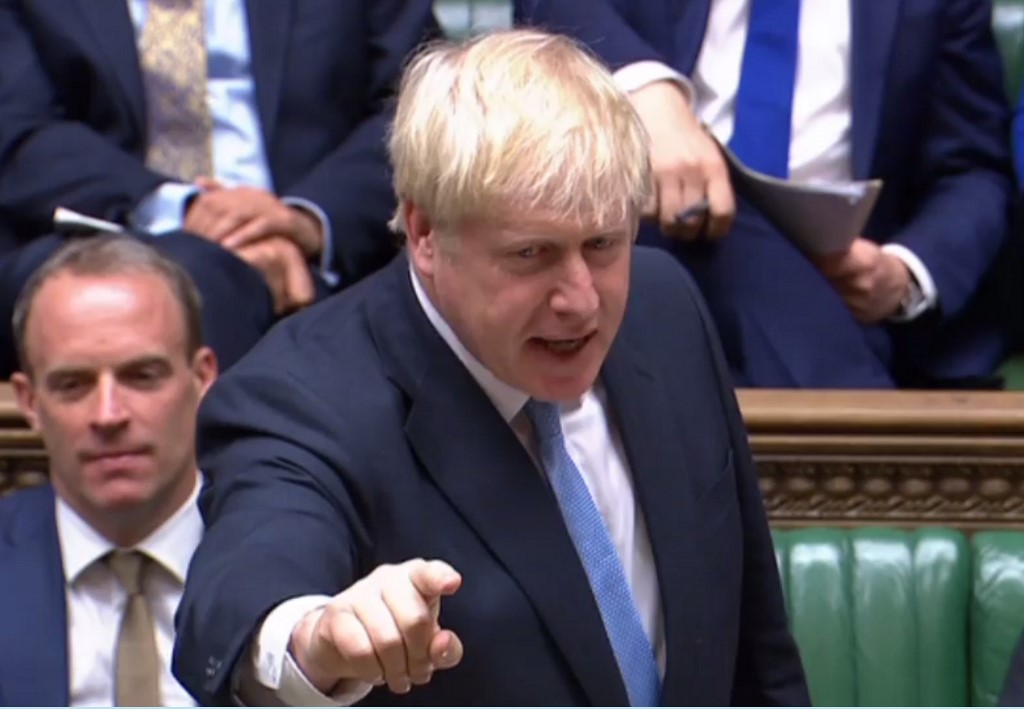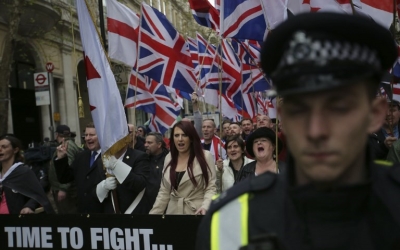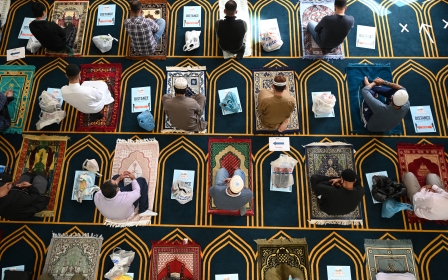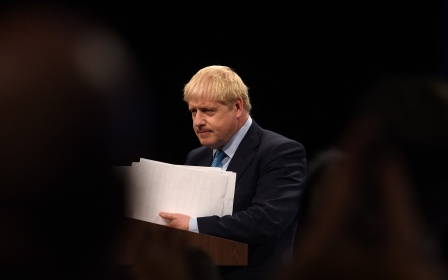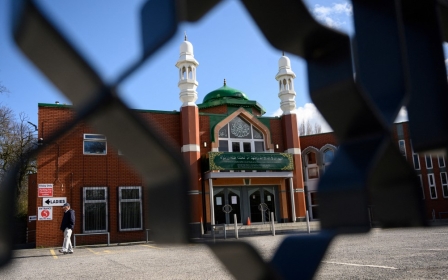Why the British government is in no hurry to define Islamophobia
Remember when the British Conservative Party pledged to come up with its own “working definition of Islamophobia”? You’d be forgiven if you don’t, given that it was more than two years ago.
Much like other matters concerning Islamophobia and prejudice against Muslims, the issue has been met with delay and denial - repeatedly kicked into the long grass, with senior Tories hoping it will just go away. In this, they have compliant allies across sections of the UK media, who have barely reported on the issue.
The Conservative Party appears reluctant to deal with the issue, if not happy to dabble in Islamophobia for the purposes of electoral gain
In May 2019, then-Communities Secretary James Brokenshire said the government would come up with its own “working definition of Islamophobia”, after claiming that the definition proposed by the All-Party Parliamentary Group (APPG) on British Muslims was not in line with the Equality Act 2010 and could “undermine free speech”.
This is despite the fact that the definition is not legally binding, and the report into the definition repeatedly references guaranteeing free speech.
The APPG definition of Islamophobia was widely accepted by other major political parties, including Labour, the Liberal Democrats and the Scottish Conservatives. Even senior police chiefs who had initially expressed scepticism over fears the definition could undermine efforts to combat extremism, later urged Prime Minister Boris Johnson to adopt it, saying they had been reassured it would not hinder their work.
Institutional Islamophobia
But none of this mattered to the Conservative Party, which is riddled with institutional Islamophobia. According to a Hope Not Hate report last year, 57 percent of party members had a negative attitude towards Muslims, with almost half of party members (47 percent) believing that Islam is “a threat to the British way of life”. In addition, 58 percent believe “there are no go areas in Britain where Sharia law dominates and non-Muslims cannot enter”.
Nonetheless, Brokenshire rejected the definition, though he acknowledged there was a need for one, given that hate crimes against Muslims were on the rise. One wonders if he had in mind the 375 percent increase in hate crimes after his leader’s comments that Muslim women who wore the burka looked like “bank robbers” and “letterboxes”, or his colleagues retweeting the likes of Tommy Robinson, whose English Defence League spent years intimidating Muslim communities.
It’s been more than two years since the government pledged to come up with its own definition, yet none has materialised. I asked the Ministry of Housing, Communities and Local Government earlier this month if there had been any update; a spokesperson told me that work on the definition had been “paused”.
The spokesperson added: “We have always been clear that this government does not, and will not, tolerate anti-Muslim hatred in any form and will continue to combat such discrimination and intolerance wherever it occurs.”
Yet, for all of its proclamations and promises to do something about Islamophobia - an issue that has received barely a fraction of the coverage it deserves, and one that concerns equality for millions of our fellow citizens - the Conservative Party appears reluctant to deal with the issue, if not happy to dabble in Islamophobia for the purposes of electoral gain.
Culture of denial
Although the much-awaited Singh investigation into Islamophobia and other forms of prejudice within the Conservative Party was finally published, albeit nearly two years after Johnson committed to holding one, it barely scratched the surface in terms of the rampant Islamophobia within the party.
The investigation found that anti-Muslim sentiment “remains a problem” within the Conservative Party, though this was an inquiry that included the very term Islamophobia in quote marks in its terms of reference, suggesting scepticism over the very concept.
Myself and journalist Peter Oborne also revealed in Middle East Eye back in April that the inquiry had failed to approach party members who had suffered Islamophobic abuse. It had no problem, however, approaching Maajid Nawaz of the now-defunct Quilliam foundation, who had said he disagreed with the term.
Not only does all of this point to a culture of complete denial, it also allows the Conservative Party to repeatedly allow itself off the hook when it comes to Islamophobia. The party cannot be in breach for failing to deal with a hatred it refuses to define and won’t let its victims define either.
This sorry state of affairs is compounded by the fact that the Equalities and Human Rights Commission has, for several years, refused to take action or to investigate the Conservative Party, even as MPs such as Bob Blackman, host anti-Muslim hate preachers who praised the Rohingya genocide in parliament, and party members call for Muslims to be thrown off bridges and sterilised.
Media complicity
Then, we have sections of the UK media whose job it is to hold power to account, yet fail spectacularly to hold Johnson’s administration to account for Islamophobia. When the Muslim Council of Britain submitted its dossier of evidence setting out dozens of examples of Islamophobia within the Conservative Party, it barely raised a murmur.
By refusing to let its victims define their own suffering, it can continue to portray hatred and racism against Muslims as a matter of debate
After the release of the Singh report, major media outlets barely covered it. And the fact that the government has failed to come up with its own promised definition of Islamophobia has been ignored by major broadcasters.
The government’s decision to pause work on defining Islamophobia should be seen in light of all of this. It knows it can afford to do so because there’s no real consequences for its failure to root out Islamophobia - certainly not among the media or leading equalities watchdogs.
It knows that by failing to come up with its own definition of Islamophobia, and by refusing to let its victims define their own suffering, it can continue to portray hatred and racism against Muslims as a matter of debate.
The views expressed in this article belong to the author and do not necessarily reflect the editorial policy of Middle East Eye.
Middle East Eye propose une couverture et une analyse indépendantes et incomparables du Moyen-Orient, de l’Afrique du Nord et d’autres régions du monde. Pour en savoir plus sur la reprise de ce contenu et les frais qui s’appliquent, veuillez remplir ce formulaire [en anglais]. Pour en savoir plus sur MEE, cliquez ici [en anglais].



